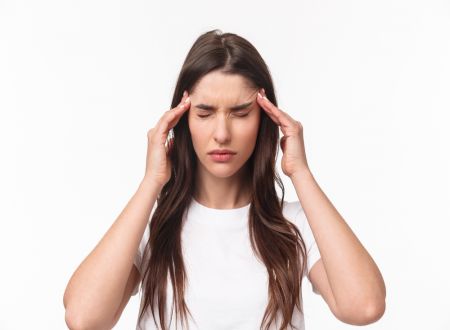Vertigo Rehabilitation
What is Vertigo?
It comes from the French word vertige. It means dizziness. It is derived from the Latin verb to return. Contrary to popular belief, vertigo is not a disease. It is a symptom of a problem in the balance system. An underlying disease causes vertigo. It can be expressed by patients in different ways such as dizziness, lightheadedness, blurred vision. Balance disorder is a condition that neurology, otolaryngology clinics are interested in.
Although a simple dizziness is seen as fatigue, it can be a sign of serious underlying problems. So much so that for some people, it can reach a level that negatively affects daily life. In fact, sometimes even if the person does not move, he may perceive everything around him as if he is moving. It should not be neglected. It requires detailed examination.
What are the Causes of Vertigo?
Disorders such as neck pain, insomnia, stress, metabolic disorders, excessive caffeine consumption, alcohol, smoking, bleeding in the brain, damage, blow, tumor, migraine, vascular occlusions, ear-related problems can cause vertigo.
What Are the Symptoms of Vertigo?
The most known and complained symptom is dizziness.
Symptoms such as low blood pressure, tinnitus, nausea, vomiting, hearing difficulties, blurred vision, loss of consciousness, and speech difficulties may occur.
How Do Vertigo Attacks Occur?
Before looking at the causes of vertigo attacks and how they occur, it is useful to know what vertigo is.
How Is Vertigo Diagnosed?
The patient's story is listened to, and the family's ailments. Vertigo is not inherited, but the diseases it causes can be inherited. How long the symptoms last, the presence of other accompanying diseases, the side effects of the drugs used for their treatment are all learned. Physical examination and necessary tests are done. The patient's gait is controlled. If symptoms such as tingling and numbness are accompanied by gait disturbance, the patient is referred to the neurology clinic. After the necessary tests are done there, the diagnosis of vertigo is made according to the findings.
Although there is a belief among the people that there is no cure for vertigo, it is not an incurable condition. With the treatment of the cause of the disease, the symptoms of vertigo may also decrease and disappear.
Vertigo Treatment Methods
If patients are faced with the above-mentioned conditions, they should consult a specialist doctor as soon as possible.
Three methods are used in the treatment. Treatment can be performed with vestibular rehabilitation along with drug therapy.
If there is no problem in the balance organs in the ear, surgical intervention may be required.
In addition to the treatment methods, regular sleep, balanced diet, meeting the daily water needs of the body, quitting triggers such as caffeine, cigarettes and alcohol are the methods that the patients will contribute individually to the treatment.
Vertigo Rehabilitation Subtitles

Vertigo (Dizziness)
What is Vertigo?
Vertigo generally occurs as a result of inner ear diseases, and more rarely, as a result of disorders related to the brain and cerebellum. Generally, the...

Who Has Vertigo?
There are many organs responsible for maintaining balance in the human body. All the senses of the bones, inner ear and eyes are gathered in the brain and cerebellum to dissolve and balance.
...
 >
>

